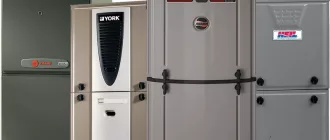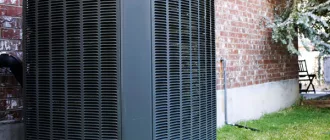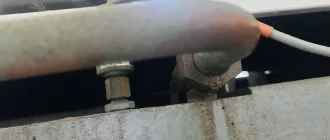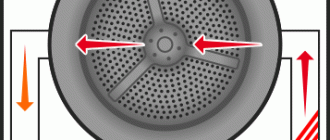
The Repair vs. Replace Dilemma: Making an Informed Decision for Your AC
When faced with a malfunctioning or inefficient air conditioning system, homeowners often find themselves in a dilemma – should they opt for a repair or replace the unit altogether? Making an informed decision is crucial in this situation, as it can have a significant impact on the comfort and energy efficiency of your home.
Before deciding, it is important to consider several factors. First and foremost, the age of your AC unit plays a significant role. Older units may require frequent repairs and can become less energy-efficient over time, which can result in higher utility bills. In such cases, replacing the unit might be a more cost-effective option in the long run.
Additionally, the extent of the repair needed should be taken into account. While minor repairs, such as fixing a faulty thermostat or replacing a worn-out capacitor, are relatively inexpensive and can extend the lifespan of your AC, more complex repairs, such as replacing a compressor or a condenser coil, can be quite costly. In these situations, it might be more prudent to invest in a new energy-efficient system that comes with a warranty.
However, it is important not to jump to conclusions too quickly. Consulting with a professional HVAC technician is crucial, as they can provide an expert opinion on whether a repair or replacement is the best course of action. They can assess the condition of your AC unit, consider its energy efficiency, and provide you with an estimate of the costs and benefits associated with each option.
Ultimately, the decision to repair or replace your AC unit depends on a variety of factors, such as its age, the extent of the repair needed, and your long-term goals for energy efficiency and cost savings. By making an informed decision, you can ensure that your home remains comfortable and energy-efficient for many summers to come.
Factors to Consider When Deciding Whether to Repair or Replace Your AC
When faced with the dilemma of a malfunctioning AC, making an informed decision can save you both time and money. Before deciding whether to repair or replace your AC, there are several factors you need to consider:
The Age of Your AC
One of the key factors to consider is the age of your AC. AC units generally have a lifespan of around 10-15 years. If your AC is nearing the end of its lifespan and requires frequent repairs, it may be more cost-effective to replace it.
The Cost of Repairs
Compare the cost of repairs to the cost of a new AC unit. If the repairs are minor and significantly cheaper than a replacement, it may be more practical to repair your AC. On the other hand, if the cost of repairs is close to or exceeds the cost of replacing the unit, a replacement may be a better long-term investment.
Energy Efficiency
Take into account the energy efficiency of your current AC unit. Older units tend to be less energy efficient, leading to higher energy bills. Upgrading to a newer, more energy-efficient unit can result in significant savings on your monthly energy expenses.
Frequency of Breakdowns
If your AC is constantly breaking down and requiring repairs, it may be a sign of a bigger problem. Constant breakdowns can be both inconvenient and costly. Assess the frequency of breakdowns and determine if a replacement would be a more reliable and cost-effective solution.
Environmental Impact
Consider the environmental impact of repairing or replacing your AC. Newer units often have improved eco-friendly features and use more environmentally friendly refrigerants. Choosing a more energy-efficient and environmentally friendly option can align with your sustainability goals.
Overall Efficiency
Think about the overall energy efficiency and performance of your AC unit. If your current unit struggles to cool your space effectively or fails to maintain a comfortable temperature, a replacement may be necessary to ensure optimal comfort and efficiency.
By considering these factors, you can make a well-informed decision regarding whether to repair or replace your AC. Remember to consult with a professional HVAC technician for their expert opinion and advice based on the specific condition of your AC unit.
Cost Comparison: Repairing vs. Replacing Your AC
When faced with the dilemma of an AC in need of repair or replacement, it can be difficult to make an informed decision. The cost comparison between repairing and replacing your AC is an important factor to consider.
Repairing your AC can often be a cheaper option in the short term. If the repairs needed are minor and can be easily fixed, it may be a more cost-effective choice. However, it’s important to weigh the long-term costs and potential future repairs that may arise.
On the other hand, replacing your AC may come with a higher upfront cost, but it can also provide several benefits in the long run. A new AC unit can be more energy-efficient, reducing your monthly energy bills. It can also come with a warranty that covers any repairs or replacements needed within a certain timeframe, giving you peace of mind.
To help you make an informed decision, it’s recommended to gather quotes from reputable HVAC professionals for both repairing and replacing your AC. Compare the costs and consider the age of your current AC unit. If it’s nearing the end of its lifespan or requires frequent repairs, replacing it may be a more cost-effective choice in the long term.
| Cost | Lower initial cost | Higher initial cost |
| Energy Efficiency | No improvement | Potential for higher energy savings |
| Future Repairs | Potential for additional repairs | Possible warranty coverage for future repairs |
| Lifespan | No extension | Potential for longer lifespan |
Ultimately, the decision to repair or replace your AC depends on your individual circumstances and budget. It’s recommended to consult with a professional HVAC technician who can provide expert advice based on the specific needs of your AC system.
The Lifespan of an AC: When to Replace
When it comes to the decision of whether to repair or replace your AC, it’s important to be well-informed. One key factor to consider is the lifespan of your AC unit.
An AC unit’s lifespan can vary depending on several factors, such as the quality of the unit, how well it has been maintained, and the frequency of use. On average, a well-maintained AC unit can last between 10 to 15 years.
However, there are certain signs that may indicate it’s time to replace your AC unit rather than repair it. One of the most common signs is frequent breakdowns or repairs. If your AC constantly needs repairs and the costs add up, it may be more cost-effective in the long run to replace the unit.
Another sign is a significant decrease in the unit’s efficiency. If your AC is no longer cooling your space effectively or if you notice a sudden increase in your energy bills, it could be a sign that your unit is nearing the end of its lifespan.
Additionally, outdated technology and inefficiency are other factors to consider. Newer AC units are often more energy-efficient and environmentally friendly, which could potentially save you money on your energy bills in the long term.
In conclusion, when making the decision between repairing or replacing your AC unit, considering its lifespan is an important factor. If your unit is experiencing frequent breakdowns, decreased efficiency, or if it’s outdated, it may be time to replace your AC and make an informed decision for the longevity and functionality of your cooling system.
Energy Efficiency: Repairing vs. Replacing Your AC
When faced with the dilemma of a malfunctioning AC, making an informed decision on whether to repair or replace your unit is crucial. One important factor to consider is the energy efficiency of your AC.
A well-maintained and properly functioning AC system can greatly contribute to energy efficiency in your home. An energy-efficient AC can help reduce your energy consumption, lower your utility bills, and minimize your environmental impact.
However, as an AC ages, its energy efficiency tends to decline. Older units may use outdated technology and lack the advanced features found in newer models that are specifically designed to maximize energy efficiency.
When deciding whether to repair or replace your AC, it’s important to consider the energy efficiency of your current unit. If your AC is old and inefficient, investing in a new, energy-efficient unit may be a better long-term solution. While the upfront cost may be higher, the savings in energy bills over time can often make up for it.
On the other hand, if your current AC is relatively new and still in good condition, repairing it may be a more cost-effective option. Regular maintenance and minor repairs can help prolong the lifespan of your AC and maintain its energy efficiency.
In conclusion, the energy efficiency of your AC is an important factor to consider when making the decision to repair or replace it. Assess the age, condition, and efficiency of your current unit to determine the best course of action to ensure optimal energy efficiency in your home.
Warranty Coverage: Repairing vs. Replacing Your AC
When faced with the dilemma of whether to repair or replace your AC, it is important to consider the warranty coverage provided by the manufacturer. Understanding your warranty can help you make an informed decision about the best course of action for your cooling system.
Before making any decisions, it is crucial to review the terms and conditions of your AC’s warranty. This will give you a clear understanding of what is covered and what is not. Some warranties may offer coverage for both parts and labor, while others may only cover certain components or have specific limitations.
If your AC is still within the warranty period, repairing it may be the most cost-effective option. In many cases, the warranty will cover the cost of necessary repairs, saving you from having to bear the financial burden. However, keep in mind that warranty coverage may vary, and some repairs may not be covered.
On the other hand, if your AC is no longer under warranty or if the repairs needed are not covered, replacing the unit might be the better decision. While the upfront cost of a new AC may be higher, it can provide you with a more reliable and energy-efficient cooling system in the long run. Additionally, newer models often come with extended warranty coverage, giving you peace of mind.
When deciding between repairing or replacing your AC, it is essential to consider not only the warranty coverage but also factors such as the age and overall condition of the unit. If your AC is old and frequently requires repairs, investing in a new system may be more cost-effective in the long term.
To make an informed decision, consult with a professional HVAC technician who can assess the condition of your AC and provide expert advice. They can help you weigh the costs and benefits of repairing versus replacing and guide you towards the most suitable solution for your specific needs.
- Review the terms and conditions of your AC’s warranty
- Consider the cost-effectiveness of repairing within warranty coverage
- Evaluate the benefits of a new AC with extended warranty coverage
- Take into account the age and overall condition of the unit
- Consult with a professional HVAC technician for expert advice
Environmental Impact: Repairing vs. Replacing Your AC
When faced with the dilemma of whether to repair or replace your AC, one factor that often gets overlooked is the environmental impact of the decision. Making an informed choice can help reduce your carbon footprint and contribute to a more sustainable future.
Repairing your AC can have a positive environmental impact. By fixing any issues with your current system, you can extend its lifespan and prevent it from ending up in a landfill prematurely. Repairing your AC also reduces the need for new manufacturing, which consumes energy and resources.
On the other hand, replacing your AC can also have environmental benefits. Newer units are typically more energy-efficient, meaning they require less electricity to operate and reduce greenhouse gas emissions. They also often use refrigerants that have a lower impact on the ozone layer.
To make an informed decision, it is important to consider the condition of your current AC unit. If it is relatively new and in good working condition, repairing may be the more environmentally friendly choice. However, if your AC is old, inefficient, and requires frequent repairs, replacing it with a more energy-efficient model could be the better option.
| Extends the lifespan of your AC | Reduces energy consumption |
| Prevents unnecessary waste | Reduces greenhouse gas emissions |
| Minimizes resource consumption | Uses more ozone-friendly refrigerants |

Ultimately, the best decision for your AC depends on various factors such as its age, condition, and energy efficiency. Consulting with a professional HVAC technician can help you evaluate the options and choose the most environmentally responsible solution.
Latest Technological Advances in AC Systems
When making the decision between repairing or replacing your AC, it’s important to stay informed about the latest technological advances in AC systems. These advancements can greatly impact the efficiency, performance, and overall lifespan of your AC, making it easier to decide which option is best for you.
One of the major innovations in AC technology is the development of smart AC systems. These AC systems are equipped with advanced sensors and Wi-Fi connectivity, allowing you to control and monitor your AC remotely through a smartphone or other smart devices. With smart AC systems, you no longer have to rely on traditional thermostats and can easily adjust the settings and temperature of your home to ensure maximum comfort and energy savings.
Another exciting advancement is the use of variable refrigerant flow (VRF) technology in AC systems. VRF technology allows for precise control of temperature and ventilation in different areas or rooms of your home, making it ideal for larger buildings or spaces with varying cooling requirements. This technology not only provides individualized comfort but also helps reduce energy consumption by avoiding overcooling or overheating in unoccupied areas.
The introduction of inverter technology in AC systems has also revolutionized the industry. Inverter technology allows the AC compressor to adjust its speed according to the cooling demand, resulting in significant energy savings and improved efficiency. Unlike traditional AC systems that operate at a fixed speed, inverter AC systems can ramp up or down their cooling capacity, depending on the environmental conditions and the desired level of comfort.
Lastly, advancements in refrigerant technology have played a crucial role in improving the environmental sustainability of AC systems. The phase-out of ozone-depleting refrigerants, such as R-22, has led to the introduction of more eco-friendly alternatives like R-410A. These new refrigerants have a lower environmental impact and higher energy efficiency, contributing to a greener and more sustainable cooling system.
In conclusion, staying informed about the latest technological advances in AC systems is essential when making the repair vs. replace decision. From smart AC systems to VRF technology, inverter technology, and eco-friendly refrigerants, these advancements offer significant benefits in terms of energy efficiency, comfort, and environmental sustainability.
Avoiding Frequent Repairs: Signs it’s Time to Replace Your AC
When faced with the repair vs. replace dilemma for your AC, making an informed decision is crucial. While repairs may seem like a more cost-effective solution in the short term, there comes a point when it’s time to consider replacing your AC unit altogether. To help you make the right choice, here are some signs that indicate it’s time for a replacement:
| Frequent breakdowns and repairs | If your AC is constantly breaking down and requiring repairs, it may be more cost-effective in the long run to replace it. Constant repairs can add up quickly, and the money spent on repairs could be better allocated towards a new unit that is more reliable. |
| Old age | An AC unit that is more than 10 to 15 years old may not be as energy-efficient as newer models. Older units may struggle to cool your home effectively and efficiently, resulting in higher energy bills. Investing in a new AC unit can lead to significant energy savings over time. |
| Lack of cooling power | If your AC is no longer able to cool your home adequately, even after repairs and maintenance, it may be a sign that it’s time to replace it. Inefficient cooling can result from worn-out parts or a system that is no longer capable of meeting the cooling demands of your home. |
| Increased energy bills | If you’ve noticed a significant increase in your energy bills without any changes in your usage, it could be a sign that your AC is no longer operating efficiently. Newer AC models are designed to be more energy-efficient, so replacing your old unit can help lower your energy consumption and reduce monthly costs. |
| Expensive repairs | As your AC unit ages, the cost of repairing it may increase. If you find yourself facing expensive repairs, it may be more cost-effective to invest in a new AC unit that comes with a warranty and reliable performance. |
Ultimately, the decision to replace your AC unit should be based on a combination of the above factors and your individual circumstances. Consult with a trusted HVAC professional to assess your AC unit’s condition and determine whether a repair or replacement is the best course of action.
Hiring a Professional for AC Repair or Replacement
When faced with the dilemma of whether to repair or replace your AC, it is essential to make an informed decision. Hiring a professional for AC repair or replacement can help you make the best choice for your specific situation.
An experienced AC technician will assess the condition of your AC system and provide expert advice on whether a repair is feasible or if it’s more cost-effective to replace the unit. They have the knowledge and skills to diagnose problems accurately and determine the most efficient and affordable solution.
Attempting to repair or replace your AC without professional help can lead to costly mistakes and potentially cause further damage. AC systems are complex and require specialized training and tools to work on them safely and effectively.
By hiring a professional, you can ensure that the AC repair or replacement is done correctly, minimizing the risk of future problems. They will guarantee the quality of their work and provide you with peace of mind knowing that your AC system is in good hands.
Additionally, professional AC technicians have access to the latest industry knowledge and technology. They can advise you on the most energy-efficient options available, which can save you money on your monthly utility bills in the long run. They can also help you choose a new AC unit that is the right size and capacity for your specific cooling needs.
In conclusion, hiring a professional for AC repair or replacement is crucial in making an informed decision. They have the expertise, tools, and industry knowledge to assess your AC system accurately and provide you with the best solution for your needs. Don’t hesitate to contact a professional AC technician when facing the repair vs. replace dilemma.
Benefits of Regular AC Maintenance
Regular AC maintenance is an essential part of being an informed homeowner faced with the dilemma of whether to repair or replace their air conditioning unit. By making the decision to invest in regular maintenance, you can enjoy several key benefits that will ultimately save you time, money, and energy.
1. Enhanced Efficiency: Regular maintenance ensures that your AC unit is operating at peak efficiency. By cleaning and tightening components, lubricating moving parts, and checking refrigerant levels, your AC will be able to cool your home more effectively, resulting in reduced energy consumption and lower utility bills.
2. Extended Lifespan: Just like any other mechanical system, regular maintenance can help extend the lifespan of your AC unit. By addressing small issues before they become major problems, you can avoid costly repairs or even the need for a premature replacement. This allows you to maximize your investment and get the most out of your AC unit.
3. Improved Indoor Air Quality: Your AC system plays a crucial role in maintaining indoor air quality. Regular maintenance includes cleaning or replacing air filters, which helps remove allergens, dust, and other pollutants from the air. This can greatly benefit those with respiratory conditions or allergies, creating a healthier and more comfortable living environment.
4. Enhanced Comfort: A well-maintained AC unit is more dependable and less likely to break down during the hot summer months. Regular maintenance can help identify and resolve potential issues before they cause discomfort or inconvenience. By keeping your AC unit in peak condition, you can ensure a consistent and comfortable indoor temperature for you and your family.
5. Cost Savings: Perhaps one of the most significant benefits of regular AC maintenance is the potential for cost savings. By identifying and addressing minor issues early on, you can prevent them from becoming major and costly repairs. Additionally, a well-maintained AC unit consumes less energy, resulting in lower utility bills. Overall, regular maintenance can help you save money in the long run.
In conclusion, making the informed decision to invest in regular AC maintenance can have numerous benefits. From improved efficiency and extended lifespan to better indoor air quality and enhanced comfort, regular maintenance is a wise choice for any homeowner. It not only helps you avoid the repair vs. replace dilemma but also saves you money and allows you to get the most out of your AC unit.
Financing Options for AC Repair or Replacement
When faced with the dilemma of whether to repair or replace your AC unit, making an informed decision requires considering the financial aspect. AC repairs can be costly, especially if the unit is out of warranty or requires major repairs. On the other hand, a full AC replacement can also be a significant investment. Thankfully, there are financing options available to help you manage the cost.
One financing option is to apply for a personal loan. Many banks and credit unions offer personal loans specifically for home improvement projects, including HVAC repairs or replacements. These loans typically have competitive interest rates and flexible repayment terms, making it easier to budget for the expense.
Another option is to use a credit card with a promotional 0% APR period. This allows you to charge the AC repair or replacement to the card and pay it off over the course of several months without accruing any interest. Be sure to carefully read the terms and conditions of the credit card offer to ensure you understand the repayment requirements.
If you prefer to avoid taking on debt, some HVAC companies offer financing plans directly. These plans often have low or no interest rates for a specified period, allowing you to spread out the cost of the repair or replacement over several months or years. Inquire with your chosen HVAC provider to see if they offer any financing options.
Lastly, some utility companies offer rebates or incentives for upgrading to a more energy-efficient AC unit. These rebates can help offset the cost of a new unit and provide long-term savings on your energy bills. Check with your local utility company to see if they have any programs available.
| Personal Loan | Borrow money from a bank or credit union specifically for home improvement projects. |
| 0% APR Credit Card | Use a credit card with a promotional 0% APR period to pay for the AC repair or replacement without accruing interest. |
| HVAC Financing Plan | Some HVAC companies offer financing plans with low or no interest rates for a specified period. |
| Utility Company Rebates | Check with your local utility company to see if they offer rebates or incentives for upgrading to a more energy-efficient AC unit. |
Before making a decision, it’s important to evaluate your financial situation and determine which financing option works best for you. Consider factors such as interest rates, repayment terms, and any available discounts or incentives. By exploring these options, you can make a more informed decision about repairing or replacing your AC unit without breaking the bank.
Choosing the Right Size and Type of AC for Your Home
When it comes to the dilemma of whether to repair or replace your AC, one of the factors that plays a significant role in making an informed decision is choosing the right size and type of AC for your home. This crucial step ensures that your AC operates efficiently and effectively, providing optimal comfort and energy savings.
First and foremost, it is essential to determine the appropriate size of AC for your space. ACs come in different sizes, measured in British Thermal Units (BTUs), which indicate their cooling capacity. Choosing an oversized AC can lead to inefficient cooling, as the AC will cycle on and off frequently without adequately dehumidifying the space. On the other hand, an undersized AC will struggle to cool the area effectively, resulting in inadequate comfort.
To determine the right size of AC for your home, many factors need to be considered, such as the square footage of the area being cooled, the number of windows, the insulation level, and the presence of any heat-generating appliances. It is advisable to consult with an HVAC professional who can perform a load calculation to accurately determine the size of AC needed for your specific requirements.
In addition to size, the type of AC you choose is equally important. Some common types include window units, split ACs, and central AC systems. Window units are suitable for cooling individual rooms or small spaces. Split ACs consist of an indoor unit and an outdoor condenser connected by refrigerant lines, making them ideal for cooling multiple rooms or larger areas. Central AC systems, on the other hand, are designed to cool an entire home and often require ductwork installation.
When selecting the type of AC, consider factors such as your budget, the layout of your home, and your cooling needs. If you have a limited budget or only need to cool a specific area, a window unit may be the most cost-effective option. If you want to cool multiple rooms or have a larger space, a split AC or central AC system may be more suitable.
In conclusion, when faced with the repair vs. replace dilemma for your AC, making an informed decision involves carefully considering the size and type of AC for your home. Ensure you choose the right size to provide efficient and effective cooling, and select the type that best suits your budget, space, and cooling requirements. Seeking advice from an HVAC professional can help you make the best decision for your specific needs, ensuring optimal comfort and energy savings in the long run.
Q&A:
How can I decide whether to repair or replace my AC?
Deciding whether to repair or replace your AC depends on several factors. Consider the age of your AC unit, the cost of repairs, and how frequently it has been breaking down. If your unit is older and the cost of repairs is close to the cost of a new unit, it may be more cost-effective to replace it. Additionally, if your AC is constantly breaking down and causing inconvenience, a replacement may be a better long-term solution.
What are some signs that indicate it’s time to replace my AC?
There are several signs to look out for that indicate it may be time to replace your AC. These include frequent breakdowns, increasing energy bills, uneven cooling in different rooms, and strange noises coming from the unit. If your AC is constantly needing repairs or is no longer functioning efficiently, it may be more beneficial to invest in a new unit.
How long should an AC unit typically last?
The lifespan of an AC unit can vary depending on various factors such as the quality of the unit, the usage, and maintenance. On average, an AC unit can last between 10 to 15 years. However, regular maintenance and prompt repairs can help extend the lifespan of your unit. It’s important to consider the age of your unit when deciding between repair and replacement.
Is it worth repairing an older AC unit?
Repairing an older AC unit can sometimes be worth it, depending on the specific circumstances. If the cost of repairs is significantly lower than the cost of a new unit and the repairs will solve the immediate issue, it may be a cost-effective solution. However, if the repairs are expensive and there is a chance of the unit breaking down again soon, it may be more prudent to invest in a new, more efficient unit.
What factors should I consider when deciding whether to repair or replace my AC?
When deciding whether to repair or replace your AC, consider factors such as the age of the unit, the cost of repairs, the frequency of breakdowns, the energy efficiency, and the overall performance of the unit. If your AC is old, constantly breaking down, and the cost of repairs is high, it may be more beneficial to replace it with a newer, more energy-efficient model. However, if the repairs are minor and the unit is relatively new, repairing it may be a more reasonable option.
What factors should I consider when deciding whether to repair or replace my AC?
When deciding whether to repair or replace your AC, there are several factors to consider. First, consider the age of your AC unit. If it is more than 10 years old, it may be more cost-effective to replace it rather than repair it. You should also consider the cost of the repair versus the cost of a new unit. If the repair is going to be expensive and the unit is nearing the end of its lifespan, it may be better to invest in a new AC. Additionally, consider the energy efficiency of your current unit. Newer models are often more energy-efficient, which can result in lower energy bills. Finally, think about the frequency of repairs. If you find yourself constantly repairing your AC, it may be a sign that it is time to replace it.
How can I determine if my AC unit is worth repairing?
To determine if your AC unit is worth repairing, you should consider a few factors. First, consider the age of the unit. If it is less than 10 years old, it is generally worth repairing, as it still has a significant lifespan left. However, if the unit is older and you find yourself frequently repairing it, it may be more cost-effective to replace it. You should also consider the cost of the repair. If the repair is going to be expensive and the unit is nearing the end of its lifespan, it may be more cost-effective to invest in a new AC. Additionally, consider the energy efficiency of your current unit. Newer models are often more energy-efficient, which can result in lower energy bills. Finally, consult with a professional HVAC technician who can assess the condition of your AC and provide guidance on whether it is worth repairing or replacing.






